The international internship experience is so much more than just days marked on a calendar and photos. Sometimes though, it’s hard to imagine what comes next, so we asked some of our alumni about their post-internship and job search experience.
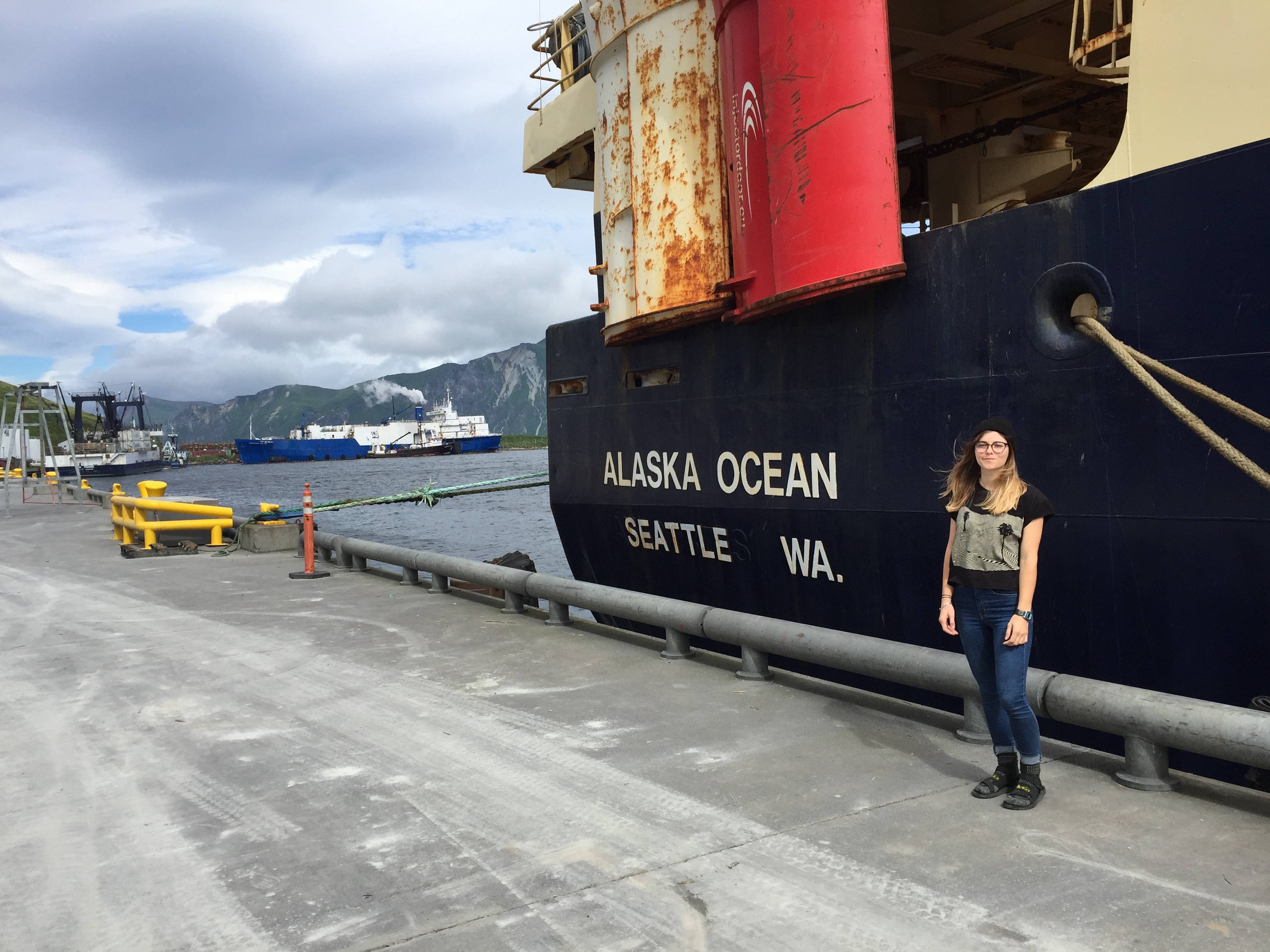
The international internship experience is so much more than just days marked on a calendar and photos. Sometimes though, it’s hard to imagine what comes next, so we asked some of our alumni about their post-internship and job search experience.
Today we’re talking with Aly, who spent three months interning with IE3 Global partner Equilibrio Azul (Ecuador) in Fall 2015. During her internship, she utilized her biology background to help collect and manage data related primarily to sharks and sea turtles. Upon her return to the University of Washington, Aly served as an IE3 Global student ambassador until she graduated in March 2017. Earlier this summer, Aly started a new job in her field, which is where we found her…
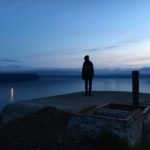 IE3 Global: Aly, it’s great to connect with you – can you share more about where you are, what you’re currently doing, and how you got there?
IE3 Global: Aly, it’s great to connect with you – can you share more about where you are, what you’re currently doing, and how you got there?
Aly: I work for Alaskan Observers Inc. (AOI) as a North Pacific Groundfish Observer and am independently contracted to collect scientific data from commercial fishing vessels for the National Marine Fisheries Service (or NMFS, a part of NOAA, which manages commercial fisheries in the US). While in the field, I take data on amounts and types of species caught, gear types used, coordinates fished, and a variety of other things having to do with the fishing operation I’m observing, using scientifically rigorous and unbiased methods.
My position is 100% fieldwork, and I live and work alongside fishermen at sea for about 90 days at a time. The information I provide helps NMFS regulate and manage commercial fisheries to ensure sustainability, and this work has turned Alaskan fisheries into some of the best managed in the world. I’m currently working out of Dutch Harbor, on the island of Unalaska.
In looking for a job, I knew I wanted to do marine biology and get in the field. When I answered the call for this position, it seemed like an amazing opportunity to see a unique part of the world and get excellent field training and exposure with NOAA scientists. So I packed up everything I own, sublet my apartment in Seattle, and after a certification and training course at the Seattle NOAA facility, AOI flew me to Dutch Harbor, and I’m currently emailing you from the Bering Sea!
IE3 Global: What was your experience like post-internship?
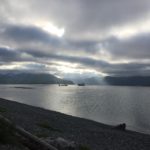 Aly: Post-internship I was back in college, and continued to take internships and jobs throughout my time in school. Internship experience doesn’t really equate to ‘real job’ experience post-graduation (maybe that’s not always the case, but I found that to be true in my experience), but it was still critically important. UW taught me a lot of things about science, but so few hard skills that you use to sell yourself to employers and set you apart from other recent graduates (data entry and analysis, coding, project design and management, communication, animal tagging and handling, networking…). Working also sets you up with a lot of professional contacts that you can rely on post-graduation.
Aly: Post-internship I was back in college, and continued to take internships and jobs throughout my time in school. Internship experience doesn’t really equate to ‘real job’ experience post-graduation (maybe that’s not always the case, but I found that to be true in my experience), but it was still critically important. UW taught me a lot of things about science, but so few hard skills that you use to sell yourself to employers and set you apart from other recent graduates (data entry and analysis, coding, project design and management, communication, animal tagging and handling, networking…). Working also sets you up with a lot of professional contacts that you can rely on post-graduation.
IE3 Global: With all these internships and jobs, how did the job search go after you graduated in 2017?
Aly: After school and before I found this job, I applied to probably about 200 other positions over the course of a year and, through all those cover letters and tailored resumes, got only two (pretty terrible) interviews for positions that weren’t a good fit with my experience level or interests. I did a lot of networking–like a LOT–and it was extremely helpful. Talking to people and hearing about the kinds of things they did post-undergrad that gave them the experience and training to get where they are convinced me to look at more “outside-the-box” jobs.
IE3 Global: What kind of impact did your IE3 Global internship have on job applications and interviews?
Aly: My internship with Equilibrio Azul is an important part of my resume because it shows significant field experience, which is a different set of skills from my other experience listed. It also helps to demonstrate my Spanish language ability that I claim in the “skills” section of my resume. During the interview, I talked a lot about Equilibrio Azul to show I was capable of working outdoors and in the elements, with wild animals, with a variety of different people, and away from home.
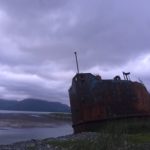 There were two skills in particular that my internship both taught me and demonstrated for me in the interview that were instrumental in securing for me my current position: my ability to communicate with fishermen and other members of the fishing community with very different viewpoints, backgrounds, and goals than my own scientific ones in a culturally sensitive way, and my ability to work independently and solve problems in an environment that is constantly changing and extremely unfamiliar (and many times with little to no communication with the “outside world”). This ability to adapt to new environments, challenges, and schedules has been shaped by so many experiences throughout my professional development, but was most rigorously tested and refined during my time abroad.
There were two skills in particular that my internship both taught me and demonstrated for me in the interview that were instrumental in securing for me my current position: my ability to communicate with fishermen and other members of the fishing community with very different viewpoints, backgrounds, and goals than my own scientific ones in a culturally sensitive way, and my ability to work independently and solve problems in an environment that is constantly changing and extremely unfamiliar (and many times with little to no communication with the “outside world”). This ability to adapt to new environments, challenges, and schedules has been shaped by so many experiences throughout my professional development, but was most rigorously tested and refined during my time abroad.
There are things that any job training can teach you – species identification, sampling techniques, data entry – but resourcefulness and attitude are skills that are hard to demonstrate on a resume and are truly cultivated by pushing yourself and your boundaries. Let’s face it – nothing gives you that extra street-cred like saying you’ve wrestled a meter long sea turtle into a boat with your bare hands, and fun, professional anecdotes help to break up the monotony of interviews and networking calls.
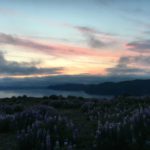 IE3 Global: That is a unique anecdote… now that you’ve successfully landed a job in your field which excites you, what words of wisdom would you share with other students?
IE3 Global: That is a unique anecdote… now that you’ve successfully landed a job in your field which excites you, what words of wisdom would you share with other students?
Aly: My internship experience abroad really gave me the confidence to go and find for myself that kind of job experience and pursue it, which led me here. Is this a job I want to do for the rest of my career? Not necessarily. But it’s giving me all the training and experience in the field I need to get onto Shark Week one day, and that’s really all you can ask for right out of college.
IE3 Global: Looking ahead, what’s next for you?
Aly: I would love to work directly for NOAA designing my own marine bio research one day. But I also want to make time to travel and work in a variety of places – that’s the dream, right? Get paid to travel? More generally, I want to be doing something that allows me to help people or the earth, and I feel that conservation and the research that contributes to it are worthy of meeting that goal.